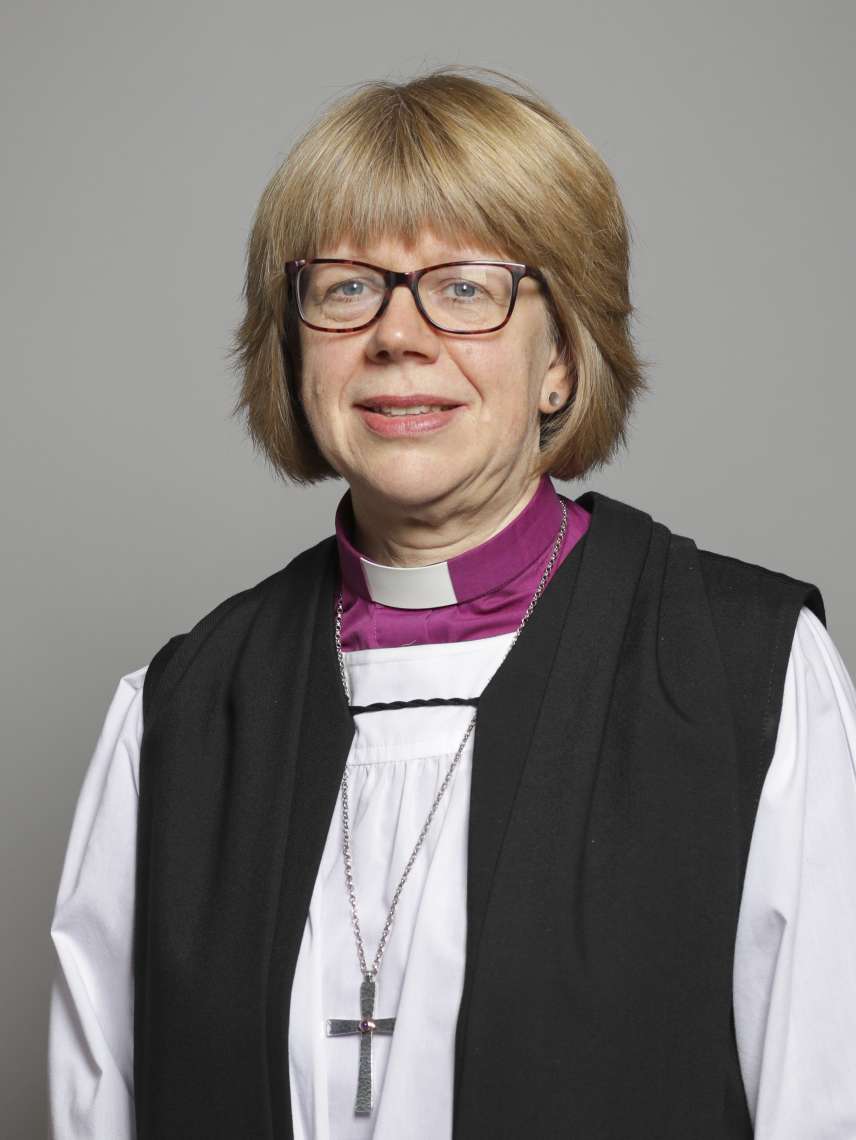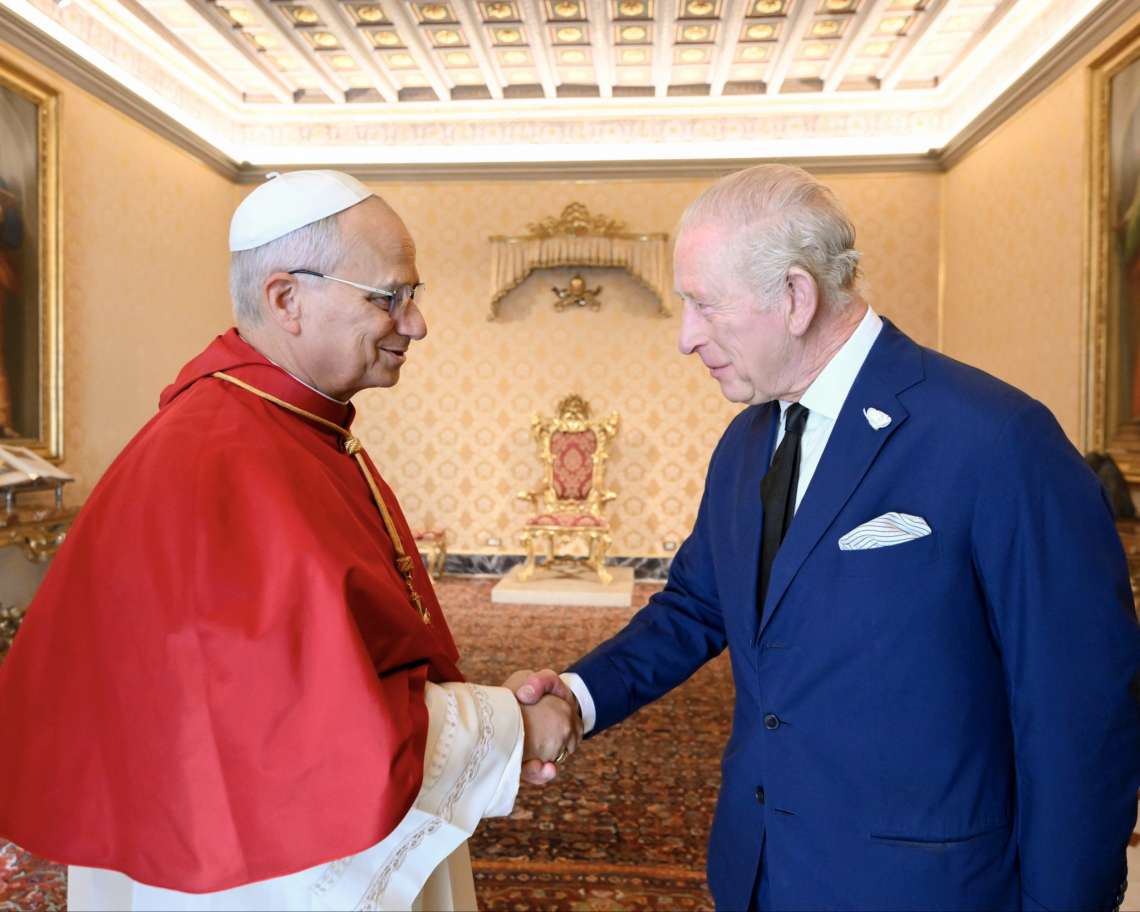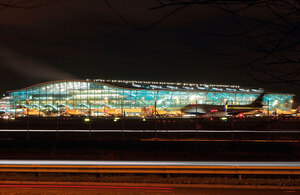Her appointment marks a milestone for the Church of England but exposes deepening global rifts over women priests and same-sex blessings…reports Asian Lite News
The Church of England has named Sarah Mullally as the next Archbishop of Canterbury, making her the first woman to hold the post in its nearly 500-year history. The announcement, confirmed by Downing Street on Friday with formal assent from King Charles, was hailed in Britain as a milestone for gender equality but immediately sparked opposition from conservative Anglican leaders abroad.
Mullally, 63, the current Bishop of London and a former Chief Nursing Officer for England, will succeed Justin Welby, who resigned amid criticism over his handling of safeguarding scandals and his outspoken interventions on political issues. As Archbishop, she becomes the ceremonial head of the worldwide Anglican Communion, representing around 85 million Christians in more than 165 countries.
Her elevation breaks one of the last glass ceilings in the Church of England, which has ordained women priests for more than three decades and consecrated women bishops since 2014. Yet the move risks further alienating large parts of the Communion in Africa and Asia, where women clergy remain unrecognised and opposition to liberal reforms is fierce.
Within hours of the announcement, senior conservative figures voiced dismay. Laurent Mbanda, Archbishop of Rwanda and chairman of GAFCON, a coalition of traditionalist Anglican churches, warned Mullally would not unify the Communion.
In Nigeria, Bishop Funkuro Godrules Victor Amgbare declared the appointment “very dangerous”, insisting that “Christ is the head of the Church, man is the head of the family, and from creation God has never handed over the position of leadership to woman.”
The Church of England’s own evangelical wing also expressed unease, warning against what it called “a drift away from scripture.”
The issue of same-sex relationships is expected to remain another major fault line. Mullally has supported blessings for same-sex couples, a reform strongly opposed in countries where homosexuality is illegal and where Anglican leaders argue such moves betray biblical teaching.
Speaking at Canterbury Cathedral on Friday, Mullally struck a conciliatory tone. “I will seek to help every ministry to flourish, whatever our tradition,” she said. In an interview with Reuters, she acknowledged that debates over sexuality were unlikely to be resolved quickly. “The Church of England and the broader Communion have long wrestled with difficult issues. It may not be resolved quickly,” she admitted.
She also pledged to confront abuses of power after years of damaging revelations about sexual misconduct and safeguarding failures, and she condemned the surge in antisemitism after Thursday’s deadly attack on a synagogue in Manchester, which left two worshippers dead.
Mullally’s journey to the highest office in the Church has been unusual. Trained as a cancer nurse, she rose to become England’s most senior nurse in the early 2000s before leaving the NHS to pursue ordination. She became a priest in 2002, one of the first women consecrated as a bishop in 2015, and was appointed Bishop of London in 2018 — the second most senior position in the Church.
Married with two grown-up children, she has often said that nursing and ministry share a common calling. “It’s all about people, and sitting with people during the most difficult times in their lives,” she once reflected.
Linda Woodhead, professor of theology and religious studies at King’s College London, said Mullally’s professional background would serve her well. “The Church needs her strong management skills. Her emphasis on unity, gentleness and strength is exactly what the Church, and nation, needs right now,” she said.
Mullally steps into office at a time when the Church is struggling with falling attendance, questions over its relevance in modern Britain, and fierce internal divisions over doctrine. As Archbishop, she will also hold a seat in the House of Lords, giving her a voice in national debates. She has already made clear her opposition to proposed assisted dying legislation currently before Parliament.
In her cathedral address, she warned against the polarisation of public life. “We live in an age that craves certainty and tribalism,” she said, adding that Britain is “wrestling with complex moral and political questions.”
Her predecessor, Justin Welby, was criticised by some Anglicans for taking strong stances on climate change, Brexit, and economic justice. While Mullally has promised to listen carefully to all wings of the Church, her progressive record on women and LGBT+ inclusion ensures her tenure will not be without controversy.
The Archbishop of Canterbury is both a spiritual figurehead and a symbol of England’s established faith. The role dates back nearly 1,400 years, but since the reign of Henry VIII, the Archbishop has served under the monarch as Supreme Governor of the Church of England.
The Vatican, which does not ordain women priests, issued a carefully worded statement welcoming Mullally’s appointment, while noting that the challenges facing the Anglican Communion were “considerable.”
On the streets of Canterbury, some welcomed the news with enthusiasm. David Pestell, 74, who leads a local tourist guide group, said: “Some archbishops have been very good, some pretty bad. Some have been very contentious, and some ended up murdered. I hope it doesn’t happen to this one. It’s delightful.”
For Mullally, the historic weight of her appointment will sit alongside immediate practical demands — healing divisions within her church, defending its place in public life, and carrying its voice into a fractured world. “It is all about people,” she has often said. As the first woman to lead the Anglican Communion, that philosophy may now define her legacy.













